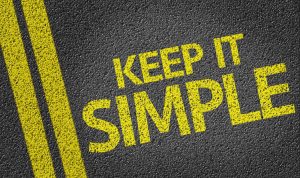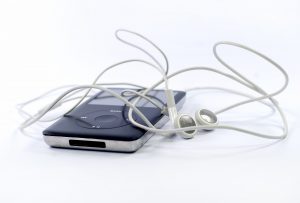
What do you think of when you hear terms like these?
Venti
4K LED Curved 3D
3.5 GHz CPU
50 Mbps download/10 Mbps Upload
2.8-liter engine
AKC Norwegian Lundehund
Force majeure
Myocardial Infarction
If you said that they were all scientific names, you are partly right. You might have said they were names made for pretentious brainiacs, some people would agree with you. In literary terms, this is called jargon.
Webster’s Dictionary defines jargon as:
1 : the technical terminology or characteristic idiom of a special activity or group
sports jargon
2 : obscure and often pretentious language marked by circumlocutions and long words
an academic essay filled with jargon
Jargon is like a habanero pepper; you should use it sparingly. You should avoid using it in almost all of your communication, in both your written marketing like your website and printed material. It should also be used infrequently when your team speaks to your prospects and customers. If you can, avoid it at all costs.
 A masterful example of this is the way Apple first marketed the iPod. Mp3 players were commercially available in the late ’90s. They sold under various memory sizes. If you talked to a salesperson in a store, and you would hear, “this one has x Gb, and that is why it’s expensive.” If you asked what that meant, they would tell you it holds more songs. (That is the first sign of jargon, by the way. If your customers ask “what does that mean” it’s jargon).
A masterful example of this is the way Apple first marketed the iPod. Mp3 players were commercially available in the late ’90s. They sold under various memory sizes. If you talked to a salesperson in a store, and you would hear, “this one has x Gb, and that is why it’s expensive.” If you asked what that meant, they would tell you it holds more songs. (That is the first sign of jargon, by the way. If your customers ask “what does that mean” it’s jargon).
In October of 2001, their first ad for the iPod, Apple described it with only five words “1000 songs in your pocket” with no mention of how many gigabytes it had. Five simple words launched a product that took the digital music world by storm.
Electronics experts will tell you there were quality, design, or performance reasons that this happened, but it started because apple spoke to people in terms that were so simple everyone could understand.
Did people avoid buying the iPod because Apple didn’t tell them the technical specs? I don’t think so.
Take a hard look at your product or service and find all the mp3 players in there. What is your marketing saying to people? What are your salespeople saying when they talk to prospects? Get all that mp3 player talk out of there and make it iPod talk. Speak your customer’s language.
There is a time for jargon. As I said, jargon is like habanero, so here is your five-alarm chili recipe. If you are in an industry that sells highly specialized products or services to an audience that is highly fluent in your specificity, then you are forced to use it.
I have a client who manufactures military-grade communication equipment to military contractors and government agencies. Breaking down their marketing message into simple sound bites would indicate that they didn’t know their asses from their elbows to their clients. They are speaking their customers’ language.
That is the lone exception to use jargon. Use it when its absence hurts your credibility. That is a rare case, indeed. You may have people ask for technical details, or highly informed prospects and clients, but most times, simple language will not turn people away.
Jargon does.
p.s. Here are what those terms are:
Venti – a serving of a drink of coffee measuring 20 fluid ounces
4K LED Curved 3D – An ultra High Definition, three-dimensional Television with a curved screen for a more immersive viewing experience
3.5 GHz CPU – A measurement of the speed of a desktop computer
50 Mbps download/10 Mbps Upload – The speed at which data can be downloaded from your cable provider and the speed at which you can upload data to it
2.8-liter engine – The size and relative performance of a car engine
AKC Norwegian Lundehund – A rare dog certified by the American Kennel Club
Force majeure – Legal term meaning an unforeseeable circumstances that prevent someone from fulfilling a contract
Myocardial Infarction – A heart attack
Speak your customers’ language by avoiding jargon
Leave a Reply